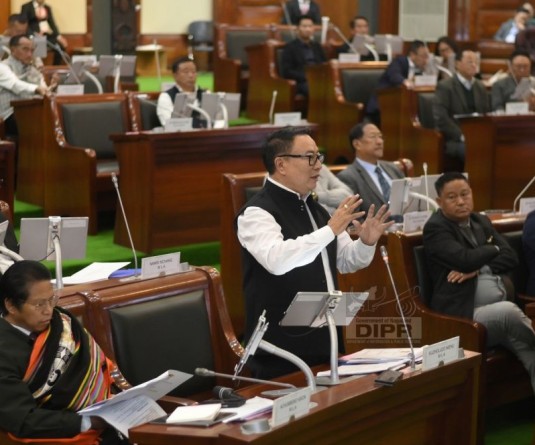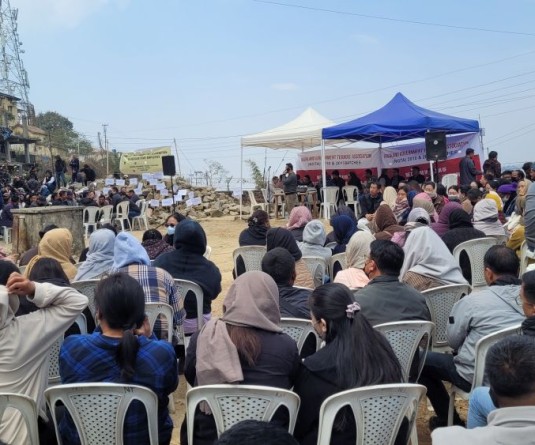
ATANU PHUKAN | PTI
KOHIMA | DECEMBER 19
With the Naga people coming out strongly for peace and prosperity, civil society organizations played a proactive role in finding a permanent settlement to the complex and protracted Naga political conflict during the year gone by.
In the backdrop of intermittent clashes among rival underground groups, the state witnessed rescuing of the fragile peace process from virtual breakdown in the beginning of the year after representatives of the NSCN (I-M) and the Centre agreed to continue with talks. Never before in the past, the Naga NGOs, particularly various tribal councils, actively intervened, by risking their lives, into war zones where rival armed cadre fought senseless battles for supremacy.
When the government forces remained a mute spectator or were reluctant to intervene during the fierce fighting between rival groups of NSCN for fear of breakdown of the cease-fire, tribal councils at Zunheboto, Athibung and other places successfully convinced the warring cadres about the futility of violence and sent them back to their camps from populated areas.
During the year, civil society organizations such as apex tribal council Naga Hoho, Naga People’s Movement for Human Rights, Naga Mothers Association (NMA) and church bodies reached out to the people to consolidate the current peace process and to stop factional killings in the state.
The year ended on a positive note as peace talks between the Centre and NSCN (I-M) reached a “crucial phase” when both sides agreed to hold parleys on “outstanding issues” more frequently to find a negotiated settlement to the six-decade-old political conflict in the region.
The talks held abroad mainly revolved around “federal relationship” between New Delhi and the Nagas as proposed by NSCN(I-M) in its charter of demands, which also includes unification of Naga inhabited areas of the north-east, an idea strongly opposed by Manipur, Assam and Arunachal Pradesh.
Sandwiched between rampant corruption on top echelons of administration and extortion by insurgent groups, Naga villagers ask underground groups to leave populated areas and relieve them from exorbitant money collections in the name of a “national movement.”
Explicitly expressing their desire for peace and prosperity, the villagers at large initiated many new ventures in agri and allied sectors after the Nagaland government declared 2006 as a year of farmers.
The initiatives to increase productivity in agri and allied sectors began with holding of first ever north east agri fair at Dimapur in March. The implementation of National Horticulture Mission, under which a Central Institute of Horticulture is being set up near Dimapur, took firm ground in Nagaland during the year with many women self-help groups taking up floriculture as promising business.
The state also witnessed an all out war against the spread of HIV/AIDS with active participation of NGOs, civil society groups and churches under the guidance of Governor Shyamal Datta and Chief Minister Neiphiu Rio.
During the year, the facility for ante-retroviral treatment (ART), care and support mechanism were expended across the state.






